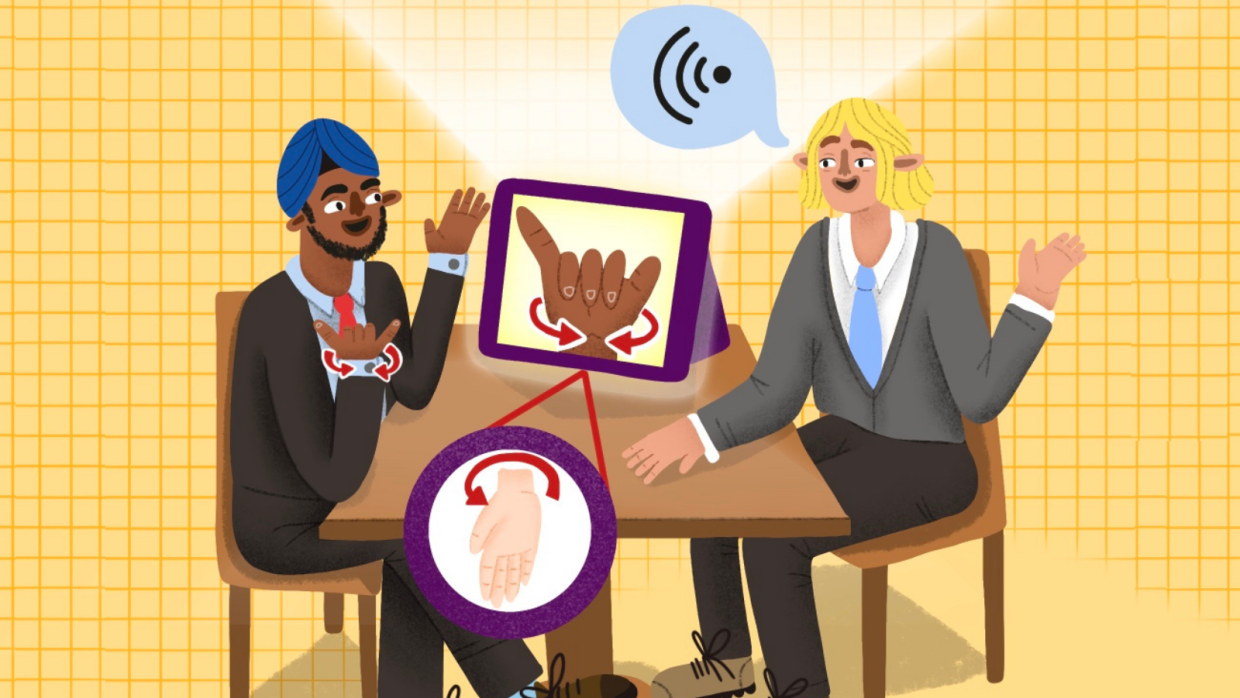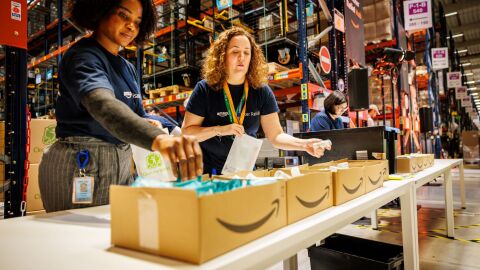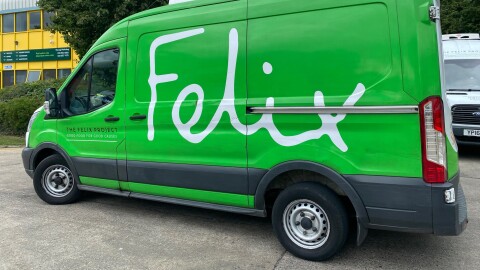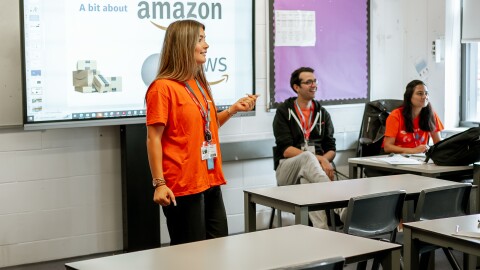The winners, runners-up and People’s Choice Award winner in the Amazon Longitude Explorer Prize have been announced, with the teams of students aged 11 to 16 developing and building prototypes of tech for good solutions to the big challenges of our time. The winning teams will receive £40,000 in prize money – one of the biggest prizes of its kind for UK schools – to develop their ideas further, supporting entrepreneurship, science, technology, engineering or maths (STEM) development at their school or youth group.
Every entry in this year’s final has demonstrated serious ingenuity and creativity… It has been really exciting to see the finalists develop their ideas into prototypes with support from Amazon mentors.
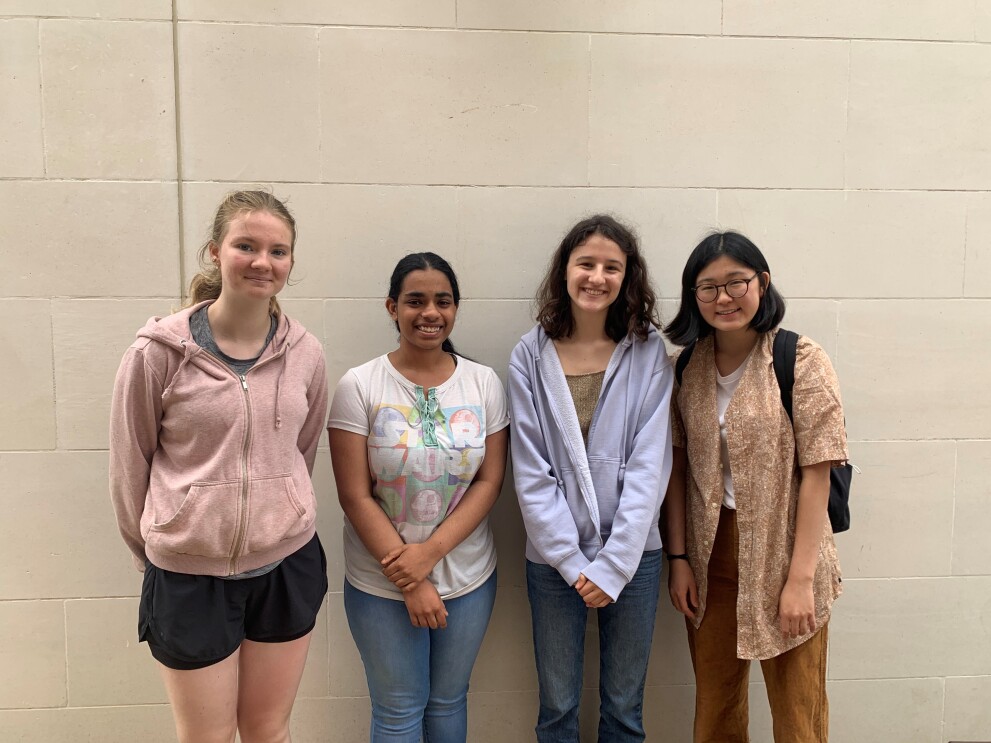
A team of students from St Paul’s School for Girls in London, The Sign Champions, won the top prize for their school of £20,000 thanks to their two-way AI-enabled British Sign Language (BSL) translator – BSL: Educate-2-Translate. Inspired by the experience of their friend who is deaf – as well as the experience of the 11 million people in the UK who are deaf or hard-of-hearing and the UK’s 151,000 BSL speakers – the team designed, developed and coded BSL: Educate-2-Translate to interpret BSL and translate it into spoken English, and likewise translate spoken English into BSL videos. In addition, the app aims to teach BSL to non-speakers with personalised feedback to video footage of the user practising.
The team explained: “Our friend Amy is deaf, as are 11 million other people in the UK. Although Amy can communicate with her close friends and family using sign language, she finds it difficult to perform daily tasks such as ordering food at a restaurant or going for a job interview - in fact the employment gap between deaf people and the general population is 14% as a result of the lack of access when it comes to BSL. Our app aims to make learning and using sign language more accessible to bring, often distant, communities together.”
On winning the top prize, team member Olympia Andipa said: “We’ve been working on the project for such a long time, it’s such a surprise to have won, especially when there were so many other exciting projects. We’re over the moon!”
The expert judging panel, which included Lauren Kisser, Director of Amazon’s Development Centre in Cambridge, and Jacqueline de Rojas CBE, President of TechUK, commended the winning team for “a cutting-edge project, with impressive teamwork… the team demonstrated an advanced use of technology and AI, creating a complex prototype that is simple to use.”
Three runners up also secured £5,000 each for their schools.
Liverpool Life Sciences UTC
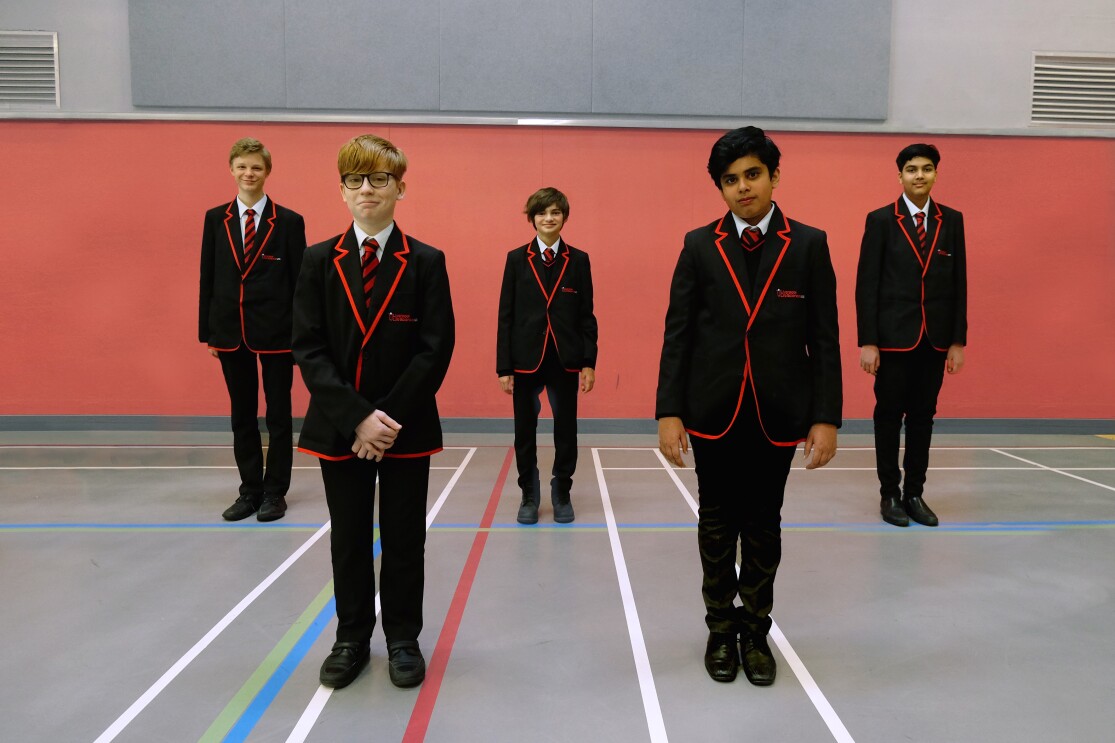
The Real Meal team at Liverpool Life Sciences UTC came up with ‘Plasticivore’, an insect-powered plastic digester that uses mealworm larvae to break down non-recyclable plastic waste. Using sensors, the box can be remotely monitored to ensure optimal conditions for decomposition. The judges commended the teamwork clearly shown in this project and were impressed by the forward-thinking concept. They believed the project was innovative and showed a lot of work to develop an alternative solution to a common problem, and were particularly impressed with the team’s prototype that works in real life.
Alderman Peel High School
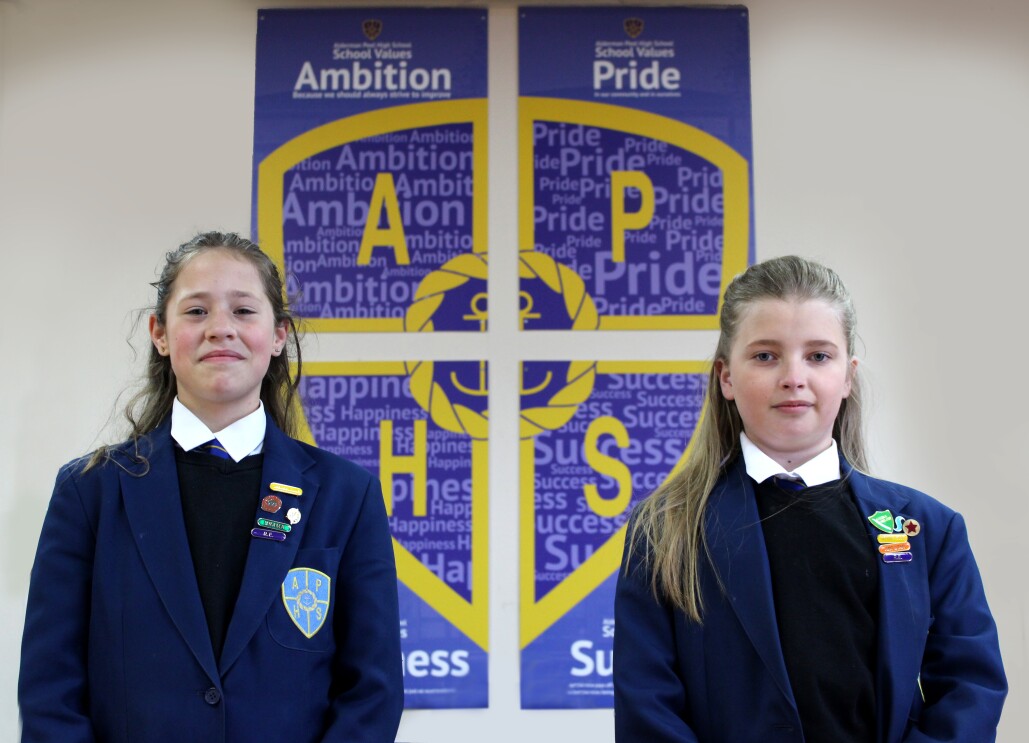
The LA Besties teams at Alderman Peel High School in Norfolk came up with ‘Pura-Sky’, a Bluetooth pollution device that can be worn as a badge or wristband to measure air pollution in the wearer’s vicinity and shares advice to reduce their exposure. The judges felt this was a really impressive project, with a working prototype, bringing attention to the important issue of air pollution.
Mendip Studio School
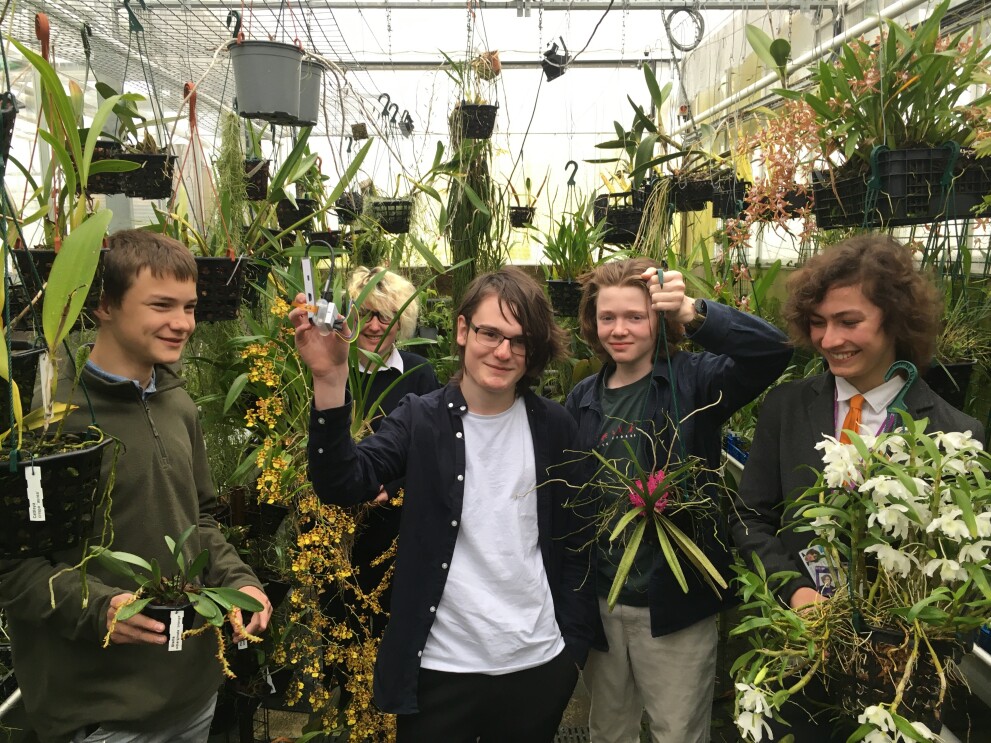
At Mendip Studio School in Somerset, the Rainforest DRAGEN team’s self-titled project is a piece of monitoring hardware for recording environmental data in communities living in and by rainforests to promote conservation. It has a companion website for sharing the data and learnings to enable young people across the world to build their own versions. The team has worked with other young people in Borneo and Rwanda already. The judges felt this was an innovative platform, with a wide range of users and intersects technology and young people impressively, with great outreach to communities around the world undertaken already.
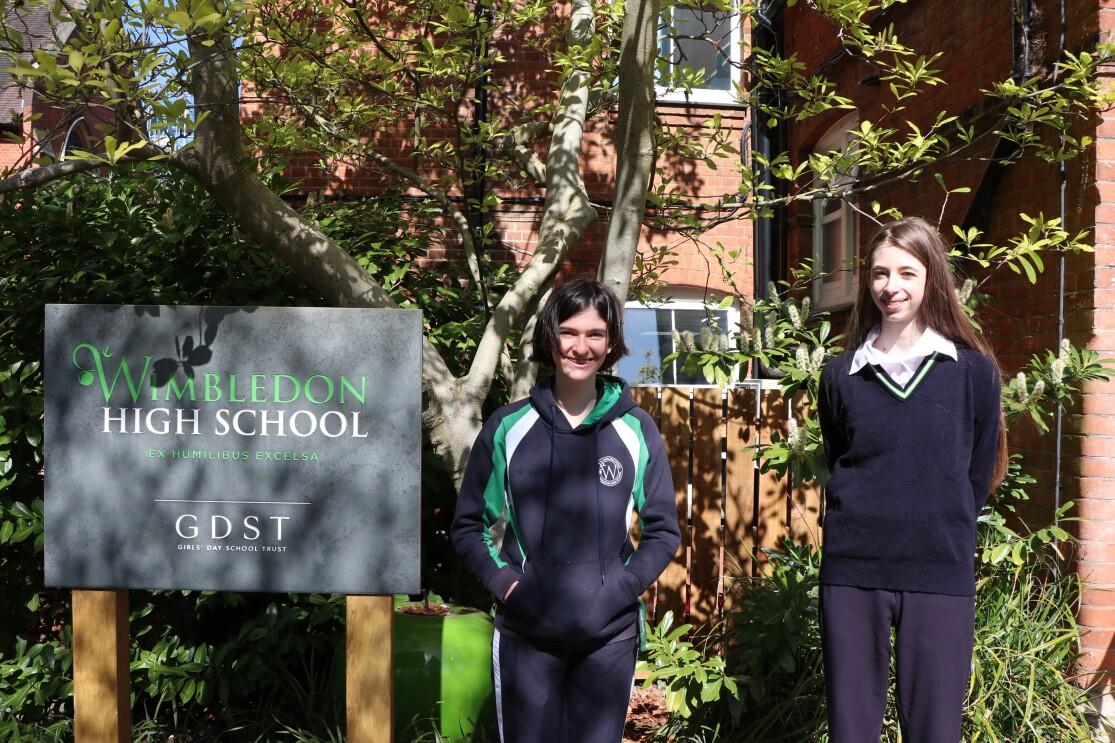
In addition, thousands of votes were cast by the public to crown ‘Bioclear’ by Team Elektrica from Wimbledon High School in London as winners of the People’s Choice Award, receiving £5,000 for their school. ‘Bioclear’ is a spherical robot that operates in water to detect and remove microplastics through infrared sensors, trapping them as a ferrofluid (made with oil and magnetite) to magnets in the back of the biobot, whilst allowing purified water to escape through a manta net.
The judges were also hugely impressed with this entry, considering it to be of a similar quality to the runners up and were pleased to see the enthusiasm that the public showed for it.
About the Amazon Longitude Explorer Prize
The Amazon Longitude Explorer Prize, delivered by innovation foundation Nesta Challenges, challenges young, innovative minds to design and develop technological solutions to the big issues of our time that deliver social good. The competition, part of Amazon Future Engineer is free for all 11-16 year olds to enter and supports young participants from all backgrounds to learn creatively about STEM while developing new entrepreneurial life-skills to turn their bright ideas into real-world solutions.
As part of Amazon in the Community, Amazon Future Engineer is a comprehensive childhood-to-career programme designed to inspire and excite children and young adults from underrepresented and underserved communities to pursue careers in the rapidly growing field of computer science. We are committed to inspiring and educating students across the UK to try computer science and engineering.
Find out more about Amazon Future Engineer.


